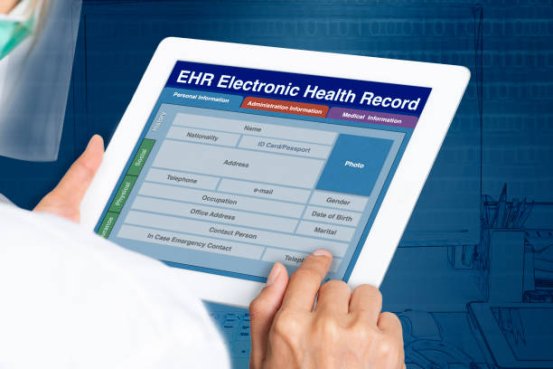Health
How EHR Solutions Are Revolutionizing Healthcare
EHR solutions convert patient records into digital formats, streamline workflows, and enhance care delivery across various medical practices. This guide explores systems tailored for small practices, pediatric care, and universal healthcare environments.
EHR solutions convert patient records into digital formats, streamline workflows, and enhance care delivery across various medical practices. This guide explores systems tailored for small practices, pediatric care, and universal healthcare environments.

Understanding EHR Solutions for Small Practices
Small medical practices encounter unique challenges in managing patient records due to limited resources and simpler IT infrastructures compared to larger hospitals. Choosing the right EHR system is therefore essential. Solutions designed for small practices emphasize affordability, user-friendliness, and scalability, enabling growth without a complete technology overhaul. Implementing these systems allows smaller providers to maintain high-quality, personalized care while staying competitive in a rapidly evolving healthcare landscape.
Benefits of EHR Solutions for Small Practices
1. Cost-Effective
EHR systems often feature pricing models suitable for smaller budgets, providing essential functions without overspending—crucial for practices with limited financial resources.
2. User-Friendly Interfaces
Intuitive design and simplified navigation help staff quickly adapt, reducing training time and allowing providers to focus on patient care instead of technical issues.
3. Scalability
Systems grow with the practice, supporting larger patient databases and evolving operational needs without requiring a full replacement.
4. Integration Capabilities
Smooth integration with billing, laboratory, and other clinical systems supports seamless workflows and a smooth transition to digital records.
These advantages help small practices enhance operational efficiency, patient satisfaction, and compliance with healthcare regulations, fostering long-term growth and success.
Eclipse EHR Solutions: A Closer Look
Eclipse EHR Solutions is well-known for its comprehensive features and adaptability across specialties. It allows workflow customization while offering advanced tools for effective patient management.
Key Features of Eclipse EHR Solutions
1. Customizable Templates
Adapt documentation templates to match specific workflows, reducing administrative workload.
2. Advanced Reporting Tools
Analyze patient data to spot trends, improve clinical decisions, and optimize operational performance.
3. Patient Portal
Provide secure access to records, encouraging follow-ups and active participation in care.
4. Interoperability
Enable smooth data exchange across systems, supporting coordinated care while preserving information integrity.
These functionalities make Eclipse a strong choice for providers seeking improved efficiency without compromising care quality.
PCC Pediatric EHR Solutions
Pediatric care demands specialized tools to address children’s unique medical and developmental needs. PCC Pediatric EHR Solutions offer features tailored to pediatricians, improving care delivery and administrative efficiency.
Advantages of PCC Pediatric EHR Solutions
1. Growth Charts and Developmental Milestones
Track growth and development to detect potential health issues early.
2. Immunization Tracking
Keep vaccination records up-to-date to ensure public health compliance.
3. Parent Communication Tools
Facilitate timely communication with parents about their child’s care.
4. Specialized Templates
Support efficient documentation of pediatric visits without missing critical health information.
PCC systems reduce administrative burdens while enabling pediatricians to provide patient-centered, high-quality care.
The Role of Universal EHR Solutions
Universal EHR systems deliver versatile solutions suitable for multiple specialties and practice sizes, allowing diverse workflows to be managed in a single platform.
Core Features of Universal EHR Solutions
1. Wide Range of Templates
Support multiple medical disciplines, improving consistency and efficiency across departments.
2. Comprehensive Data Management
Centralize patient information for easier access, reducing fragmentation and enhancing decision-making.
3. Enhanced Security Measures
Protect sensitive data with robust protocols for confidentiality and regulatory compliance.
4. Telehealth Integration
Enable virtual consultations, expanding access for patients and offering flexibility for providers.
Universal EHR systems streamline operations while efficiently addressing diverse healthcare needs.
EHR Adoption Trends in Healthcare
EHR adoption has surged over the past decade, fueled by technology, regulations, and incentive programs. Office-based physician adoption rose from 42% in 2008 to 86% in 2017 (ONC), highlighting healthcare’s shift toward digital solutions to improve efficiency, patient engagement, and outcomes. Initiatives like Meaningful Use accelerated adoption by encouraging the move from paper to electronic systems.
Challenges in Implementing EHR Systems
1. Cost Concerns
Initial setup and ongoing maintenance can be substantial, particularly for smaller practices.
2. Training Requirements
Staff may require extensive training, temporarily diverting attention from patient care.
3. Data Migration Issues
Transferring existing records is complex and requires careful planning to prevent data loss or corruption.
4. Resistance to Change
Some staff may resist new technology, requiring strong leadership and change management strategies.
Successful EHR implementation depends on thorough planning, clear communication, and vendor support to ensure a smooth transition.
Q&A Section
What is an EHR? A digital system containing comprehensive patient data—including medical history, diagnoses, medications, test results, and treatment plans—enabling coordinated care across settings.
How do small practices benefit from EHRs? EHRs improve workflow efficiency, reduce errors, streamline administration, ensure regulatory compliance, and optimize resource management.
Are there pediatric-specific EHRs? Yes, PCC Pediatric EHR Solutions include features such as growth tracking, immunization records, and specialized templates for children.
What factors should providers consider when choosing an EHR? Key factors include cost, usability, scalability, integration, security, and vendor support for long-term success.
How does telehealth integration work in Universal EHRs? Integrated platforms allow secure remote consultations, enhancing accessibility and convenience for patients and providers.
References
https://www.capminds.com/blog/athenahealth-vs-epic-for-small-practices-what-you-need-to-know/
https://www.clinii.com/integrated-ehrs
How do you like this article?




